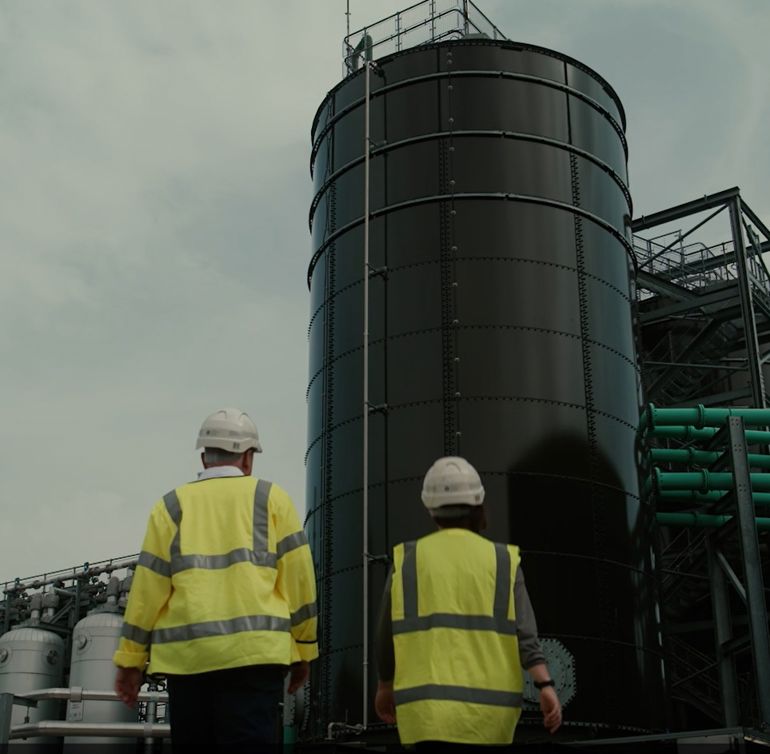NRW strengthens regulation of water companies as annual performance reports published

Natural Resources Wales (NRW) continues to strengthen its regulation of the water industry in Wales, as data from its annual Environmental Performance Assessment report shows another year of disappointing results for Dŵr Cymru Welsh Water.
The main area of concern highlighted in the report is another increase in sewerage pollution incidents – rising for the 5th year running.
Earlier this year, NRW published a Pollution Incident Report, which revealed that Dŵr Cymru Welsh Water was responsible for 155 sewerage and water supply pollution incidents during 2024, including six serious incidents and 149 lower impact incidents. This is the highest number of incidents recorded by the company in ten years.
Improvements were recorded in data for the company’s self-reporting of incidents. During 2024, the company self-reported 74% of incidents, representing a 6% improvement since 2022, but still below the 80% target.
Compliance with numeric permits for discharges from wastewater treatment works and water treatment works rose from 98% in 2023, to 98.7% in 2024, but further improvement is needed to get to 99% compliance. These set quantitative limits which protect the receiving watercourse.
Elsewhere in the report, concerns were noted about a rise in non-compliant sites with descriptive permit conditions. These conditions cover aspects such as site maintenance, operational management, and reporting obligations, including self-monitoring responsibilities.
The report confirms that Dŵr Cymru Welsh Water will remain at two-star ‘company requires improvement’ rating for the third consecutive year.
Becky Favager, Head of Regulation and Permitting from NRW said:
“While Dŵr Cymru Welsh Water has demonstrated improvements in some areas, it is unacceptable that they have not been able to address the root cause of their year-on-year increase in pollution incidents.
“As a result of these performance failings, NRW has pursued and concluded a number of prosecutions against Dŵr Cymru Welsh Water this year, including offences relating to serious pollution incidents and self-monitoring obligations.
“We continue to strengthen our regulation by increasing our compliance monitoring - including more site visits and audits. We’ll also be tightening the criteria in the annual Environmental Performance Assessment, including new metrics to provide a better overall picture of the impact of water companies on the environment enhancing transparency, accountability and further strengthening our regulatory response.
“In the coming years, we are expecting the company to deliver an ambitious investment programme which will see record levels and action and investment in the environment, targetting areas where their operations are causing the most harm.
“While we will continue to push for better performance, the company must drive the systemic change needed to meet its environmental obligations.”
Dŵr Cymru Welsh Water is Wales’s largest provider of drinking water and wastewater sewerage in Wales Wales, but Hafren Dyfrdwy, part of the Severn Trent group, provide wastewater and drinking water services to some border counties in north and mid Wales.
Due to its small operating area, Hafren Dyfrdwy does not receive a star rating from NRW, however similar measures are used to assess the company’s performance.
During 2024, Hafren Dyfrdwy performed well on maintaining its record of no serious pollution incidents since the company was formed in 2018. The company also maintained numeric water discharge permit conditions at 100% for the second year running.
However, the number of lower impact sewerage and water supply pollution incidents it was responsible for did rise from four to five, and its self-reporting of incidents declined from 75% in 2023 to 60% in 2024.
Becky added:
“It is encouraging to see Hafren Dyfrdwy performing well for another year, and we are particularly pleased with the company’s clean record on serious pollution incidents.
“While the overall number of lower impact incidents caused by the company each year is relatively low, we would still like to see them working on reducing these further, and getting on top of their responsibility to self-report incidents to us.”
The annual performance reports for both companies are available to view on the NRW website. The latest analysis on spill data from storm overflows is also now included within the reports.
As well as changes to the annual Environmental Performance Assessment, new legislation will require water companies to publish Pollution Incident Reduction Plans by April 2026. These plans must clearly explain how companies will reduce pollution from all their assets, including storm overflows.
